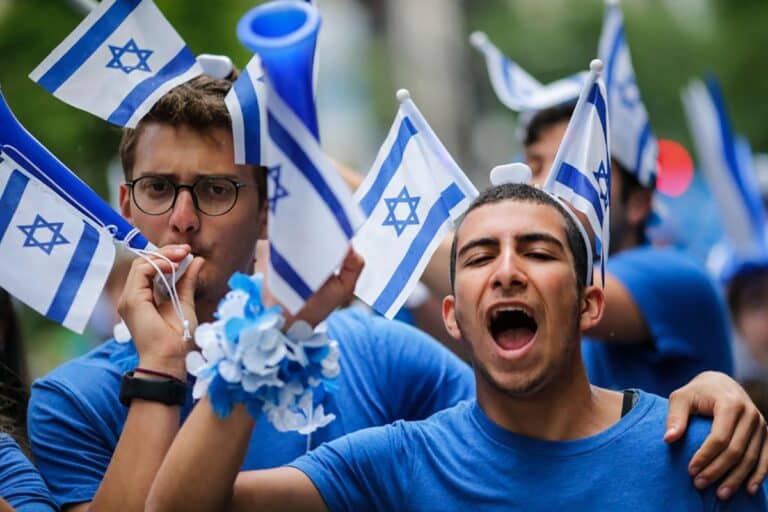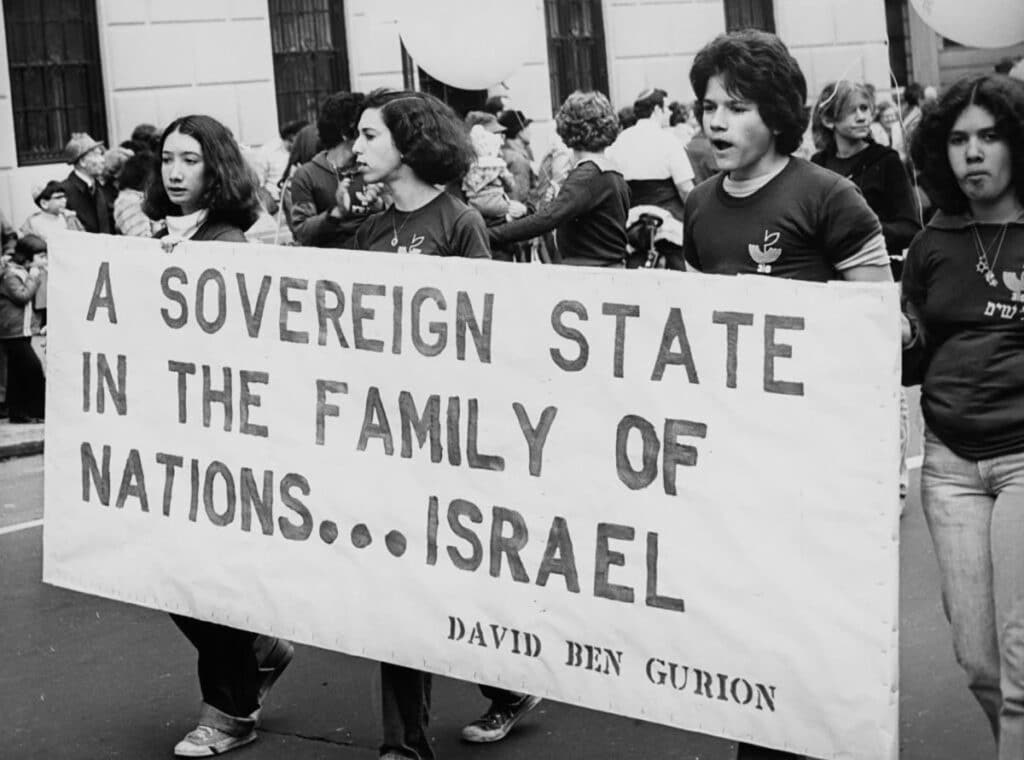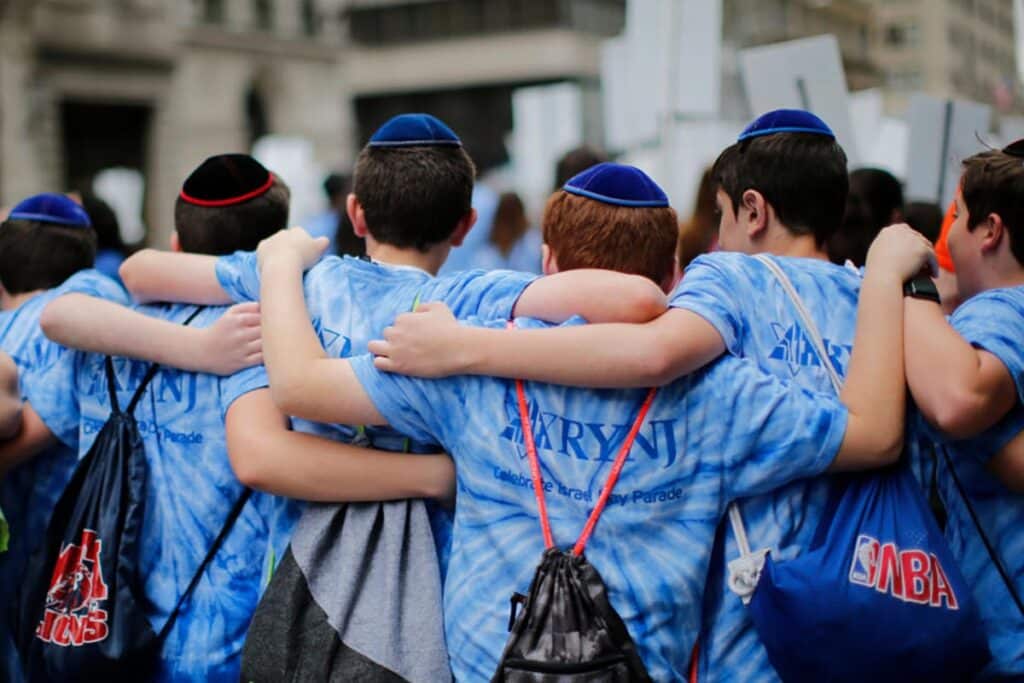
Every year in early June, thousands of Israel supporters flood the streets of New York City to participate in the Celebrate Israel Parade (commonly known as the “Israel Day Parade”). The streets are filled with blue and white flags, as marchers of all ages display their solidarity with Israel.
But what difference does this annual event really make? As someone who has participated in the parade every year for over a decade, this question has been on my mind. To fully understand its impact, we have to start from the beginning.
What happens at the Israel Day Parade?
The Israel Day Parade is an annual parade where tens of thousands — and sometimes hundreds of thousands — of people march down Fifth Avenue in Manhattan. Many participate in groups with their schools, camps, synagogues, or organizations, wearing matching attire.
Meanwhile, spectators line the route, cheering on their friends, families, and fellow Israel supporters. Although the parade is made up of mostly students, people from all backgrounds attend. The environment is fun and lively with loud cheering and music.
Midway through, each group receives recognition over the loudspeakers. American and Israeli politicians, as well as other prominent figures, attend to show their support for the U.S.-Israel relationship.
The Jewish Community Relations Council of New York, which organizes the parade, seeks to “build relationships to advance the values, interests, and security” of the New York Jewish community, according to its website. The parade is a way for participants to express “love and support for the State of Israel,” according to the council.
The origins of the Israel Day Parade

The parade began in 1964 as the “Salute to Israel Parade.” Haim Zohar, an Israeli diplomat based at the consulate in New York, envisioned the event as a way to forge connections between American Jews and Israel.
That year, Zohar collaborated with Charles Bick, Ted Comet, Alvin Schiff, and Dan Ronen to launch the inaugural parade in association with the Modern Orthodox Manhattan Day School. The parade celebrated Israel with student marchers, music, and passionate speeches.
The following year, when former Israeli Prime Minister David Ben-Gurion visited New York City, thousands of people spontaneously gathered on Fifth Avenue to show their support for the Jewish state. This led to what would eventually become the parade’s now-traditional route.
Diversity of perspectives
Many view the parade as not just fun but an important opportunity to stand up against antisemitism and anti-Zionism.

Ted Comet, one of the parade’s co-founders who is now 91, said in 2014 that the event is “an expression of a sustained Jewish commitment and relationship with Israel…It is important that [American Jews] maintain and sustain that sense of connectedness.”
Israeli President Isaac Herzog echoed this, describing the parade as “a powerful reminder of everything that holds us together as one proud people.” It is an “opportunity to walk together in solidarity and to remind ourselves of the power of our unity,” he added.
On the other hand, former Israeli diplomat Alon Pinkas derided the parade as a “march of folly” filled with “meaningless cliché confetti.”
In a Haaretz op-ed published earlier this year, he wrote, “16 Israeli ministers and lawmakers flocking to New York to attend a parade is a travesty wrapped in a caricature inside a burlesque.
“So what will these 16 politicians do? Nothing. And then they’ll come back to Israel and ceremoniously announce that relations have never been better — all because a little old lady shouted ‘I love you’ on the corner of 63rd Street.”
However, many parade participants see it differently. They argue that displaying Jewish pride, especially in times of rising antisemitism, is crucial. The parade sends a message of a resilient and unified Jewish community. Even if it doesn’t lead to policy shifts, it still positively impacts those who attend.
So, is the parade of profound importance or just symbolic? While opinions vary, here’s my conclusion. The Jewish principle of “Or Lagoyim” (being a “light unto the nations”) is that Jews should not only feel proud of their Jewish identity but should also enthusiastically demonstrate that pride. The Israel Day Parade is an opportunity to do just that.
Originally Published Jun 1, 2023 11:35AM EDT


